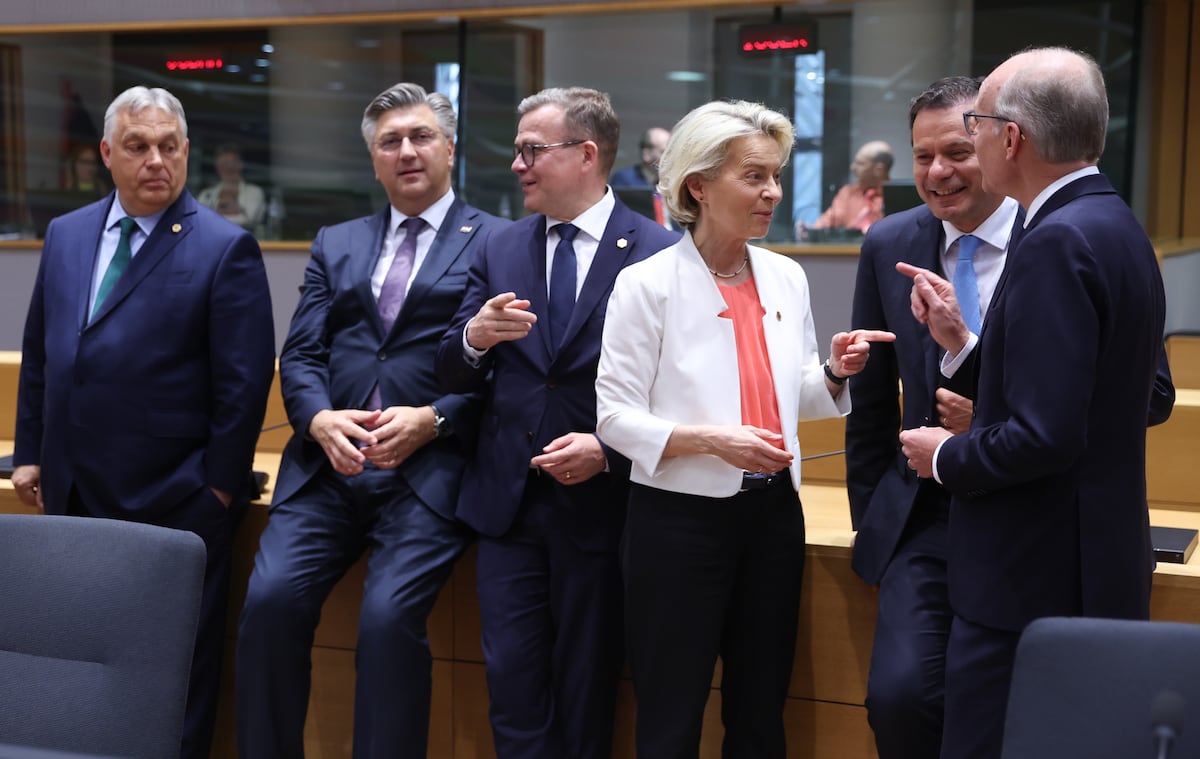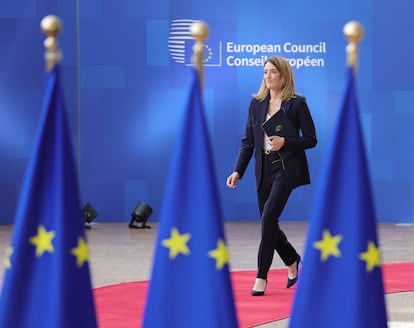European leaders rely on a quick decision on the distribution of positions in the EU in the face of global instability | European elections 2024 | News

The most obvious consensus among European leaders is that there is a rush to agree on who will lead the EU institutions during the next term. The reason for this rush is that leaders do not want to add more noise to a very volatile situation in Europe and the world, with the rise of populism and the extreme right and a rarefied political climate.
The heads of state and government of the 27 member states want to agree informally this Monday on the puzzle for senior officials. The favorites: the German Ursula von der Leyen (popular) to repeat as head of the European Commission; the Portuguese António Costa (Social Democrat) for the European Council; the Estonian prime minister, Kaja Kallas (liberal), as High Representative for Foreign Policy and Security; and Roberta Metsola (popular), to continue for another term as head of the European Parliament. This distribution will respect the political balance – the European People’s Party was the most voted force in the European elections on June 9; and the Social Democrats, second – gender and regional.
Although the package has great support, as is often said in these types of negotiations, nothing is agreed until everything is agreed. The socialist Costa has the support of the government and of the Portuguese Prime Minister Luis Montenegro, of the European People’s Party. But other voices in the conservative ranks have expressed doubts about his appointment this Monday. He is accused of having a court case for corruption that is affecting his closest allies and which led him to resign as prime minister. “We need to clarify the legal context,” commented Polish Prime Minister Donald Tusk this Monday. To try to adjust the balance, Tusk and the other EPP negotiator, the Greek Kyriakos Mitsotakis, have met before the leaders’ dinner with the Social Democratic negotiators, the German Chancellor, Olaf Scholz, and Pedro Sánchez, at the initiative of the president of the Spanish government.
Plays and commands
The moves and arguments begin: the Popular Party has proposed a presidential candidate presiding over the Council for half of the legislature (two and a half years) and a socialist leading it for the other half. This could be done without invoking the rule, since the treaties indicate that the terms of office of the president of the Council are two and a half years and can be renewed once. However, the socialists are not willing to bow down, the same sources explain.
Chancellor Scholz said, “It will be important to decide quickly and promptly, because we are living in difficult times and it is important to know what the future holds for Europe.” Danish Social Democrat Mette Frederiksen, who seemed strong to preside over the Council and who, in fact, is a popular favorite for her tough positions on defense and migration, has tried to remove herself from the equation this Monday. “I hope we will reach an agreement soon, because it is important to keep pace with what is happening in the world and to be a symbol of stability,” she said upon arriving at the leaders’ meeting in Brussels. Emphasizing that von der Leyen has done a “good job” this term.
Join EL PAÍS to follow all the news and read without limits.
Subscribe

The results of the European elections have confirmed the rise of the extreme right and shaken the Franco-German tandem, the EU’s traditional driving force. In Germany, the far-right Alternative for Germany (AfD) emerged as the second political force in these elections, dealing a blow to Scholz’s government coalition and the Social Democrats, who experienced their worst historical result. In France, Marine Le Pen’s far-right (National Rally) was the first force in the landslide victory that forced President Emmanuel Macron to call early legislative elections. These elections have caused great concern in Brussels due to the possibility of a rise of extremists in the EU’s second-largest economy.
The leaders will take into account that the person elected to the presidency of the European Commission must be approved by a majority of MEPs in the European Parliament (361 out of 720). There is speculation in Brussels that the conservatives cannot ensure that von der Leyen receives the block vote of her own colleagues. Although the leader of the Spanish PP, Alberto Núñez Feijóo, has assured this Monday that the support at the meeting of European conservatives has been “unanimous” and “without any rifts”, the populists of France (the Republicans) and Slovenia have already announced that they will not support the German company. This means a desertion of 11 MPs. It is a very low figure, but the EPP itself expects that since the vote is secret, there will be more defections.
Subscribe to continue reading
Read without limits
,
